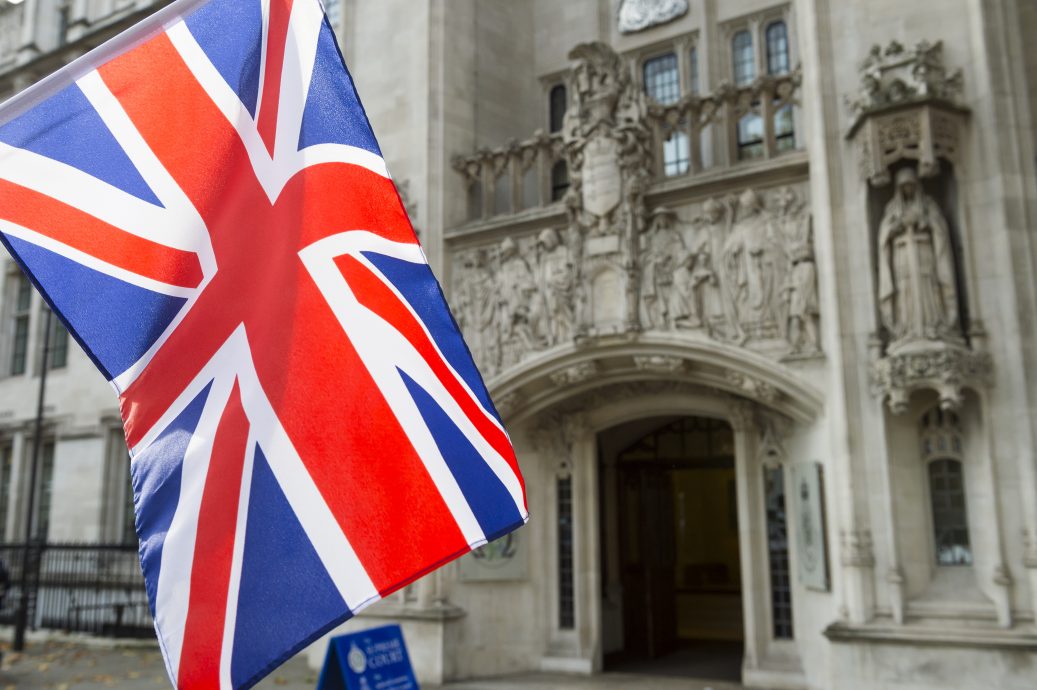Brexit and Covid have, separately and cumulatively, forced to the surface European tensions that had lain dormant.
UK Supreme Court Ruling Brings Greater Legitimacy to Brexit
Last week, in an 8-3 vote, the UK Supreme Court ruled that the Government of Prime Minister Theresa May must seek new legislation before starting negotiations to leave the EU—the so-called Brexit. The Prime Minister had argued that, in light of last June’s referendum in favor of Brexit, and pursuant to the Crown’s sole authority to make and withdraw from international treaties, she could commence negotiations without further legislative action. But the court held that withdrawing from the EU would effect a change in domestic law and that, under the British Constitution, the government may not take such action without parliamentary authorization. The June referendum in favor of Brexit was not legally binding; a new statute would be necessary.
The ruling was not unexpected. May’s Government already had prepared draft legislation, which it presented to Parliament a couple days after the decision came down. The legislation seems very likely to pass in some form. Although the Government resisted having to go to Parliament, undoubtedly because of the possibility of delaying tactics and other obstacles, on balance it seems a good thing. In the long run, Brexit will be seen as more legitimate if Parliament formally votes on it, with members of the Government and the opposition going on record.
But about the court’s decision. Much of it turns on rather technical questions of statutory interpretation, especially interpretation of the European Communities Act of 1972, a statute passed at the time the UK first joined the EU, then called the EC. It’s probably not helpful to detail the court’s reasoning on the statutory question here. For what it’s worth, the court’s holding seems plausible to me. But an American lawyer should be careful opining on legal questions from another country.
Two important points do seem clear from the Supreme Court’s decision, though, one about the EU and the other about the British Constitution. First, the decision confirms that Leave campaigners were correct that EU membership had constrained British sovereignty in a dramatic and historically unprecedented way. Under the 1972 statute, for the first time in centuries, the UK had transferred continuing lawmaking authority to supranational bodies. It had made the decisions of EU institutions, including the EU’s judicial body, the Court of Justice, automatically binding on Parliament and British courts. As a result, the EU directly affected the content of British law, and therefore the rights of British citizens.
Of course, it was precisely this loss of sovereignty that rankled Leave supporters. Why, they asked, should unelected, anonymous EU officials have lawmaking authority in the UK? How could it be democratically legitimate for foreign actors to bind British subjects? Supporters of Remain, especially in academic circles, were always apt to downplay the transfer of sovereignty; it was, they said, no big deal. If the court’s decision is any guide, the Leave side was clearly correct.
Second, the decision offers a helpful lesson for American lawyers on the (to us) rather odd nature of the British Constitution. There is no formal British Constitution, in the sense of an authoritative document of the sort many nations have, including the US. The British Constitution, the court’s ruling reiterates, is an informal set of “arrangements” that “have developed over time in a pragmatic as much as in a principled way, through a combination of statutes, events, conventions, academic writings, and judicial decisions.” Whether statutes, events, and judicial decisions are constitutional may only become apparent after years have passed, when it becomes possible to evaluate their lasting significance.
The political traditions of the British people, in other words, are their Constitution. Tradition has an important place in American constitutional law, too, but it is more auxiliary and interstitial. It’s no wonder that a political philosophy like Burke’s could develop in Britain—and why, by contrast, Burkean conservatism has had a comparatively hard time gaining a lasting place here among us.



